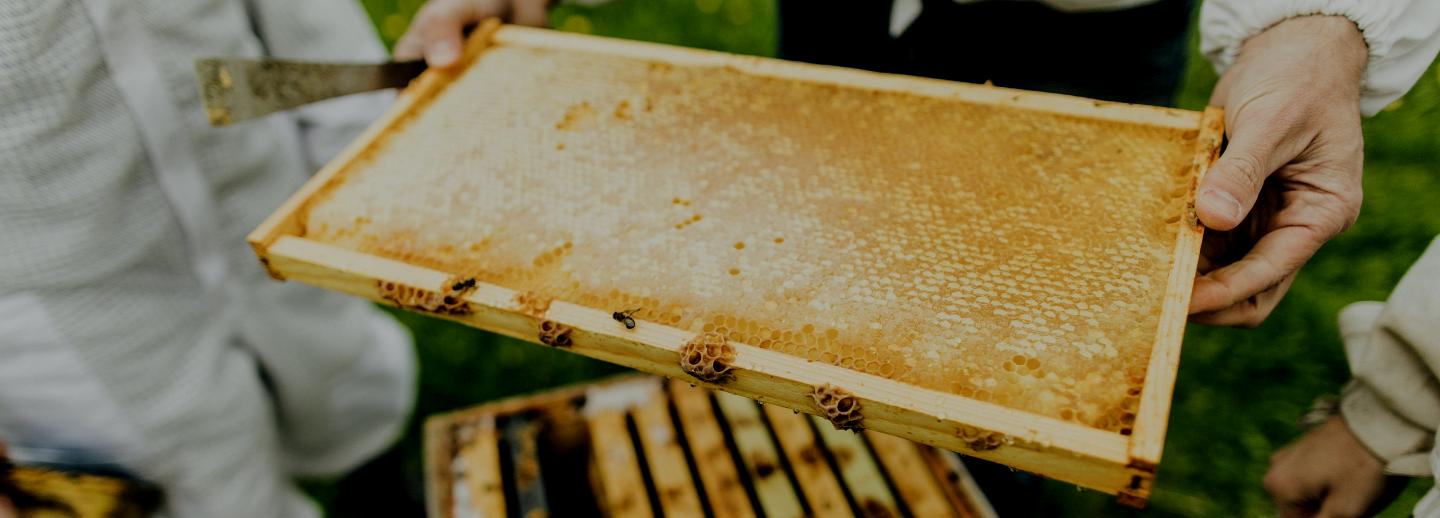Seasonal Colony Management
Management is the key in the success of beekeeping. All good beekeeping conditions can be nullified if the management of on apiary is faulty and ill planned. It is useful to start with few bee colonies and build up the stock. Bees need to be protected in extreme weather conditions, during dearth periods, and from diseases and enemies. Success of a beekeeper depends upon his knowledge of bee behaviour and his aptitude to enjoy working with bees. Following outlines give the broad guidelines, though modifications and deviations are must depending upon the local conditions.
Annual Cycle of a Colony
The annual cycle or pattern of a honeybee colony reflects the process of sustaining the colony around the year based on the climatic conditions and weather, and the availability of forage. The annual cycle is affected by seasonal change. The morphology, anatomy, and genetic character of honeybees is adapted to allow continued development and maintenance of a colony even under unfavourable climatic conductions.
Seasonal Colony Management
Seasonal colony management is the set of management practices designed to meet the different needs of a colony over the year. Colony management is an integral part of modern beekeeping and is essential to maximize honey production, for colony division, for the production of other bee products, and for providing pollination services. The honey flow period is the time when the most flowering plants are available for forage. The off season or dearth period is the time when little forage is available and the climatic conditions are unfavourable for foraging. The timing of these periods differs in different locations. The approximate timings at different altitudes of the Himalayan region are provided as a guide in Table:

* The honey flow and off (dearth) seasons vary according to forage source and exact location
Activities before and during the honey flow season
- Establish a healthy colony prior to the honey flow season.
- Beekeeping calendar starts with the activity of bee colonies in spring after prolonged winter cold. Colonies expand by increased brood production. In very cold regions the brood rearing starts about a fortnight before first flowers appears. But in plains of India the winter brood rearing is enhanced in spring.
- Clean hives.
- Observe the presence and performance of the queen.
- Check the status of the brood and adult bees.
- Provide a honey super once all the brood frames are full and the colony active to create a good working environment for the bees. Fill all ten slots with frames with previously harvested combs that have been cleaned, or with comb foundation if no used combs are available.
- Add additional frames to the super as needed.
- Wait until 70% of honey cells in the super are capped and then harvest honey.
- Widen the entrance of strong colonies.
- Check the combs in the brood chamber and remove any that have been abandoned or that look very old (blackened).
- Control and manage swarming.
- Avoid using drugs to treat a colony during the honey flow season. If disease and pest attacks occur, apply suitable control measures but don't harvest the honey.
- Feed colonies and keep them warm if there is a cold wave during the honey flow season, especially during winter in foothill and plains areas.
- Keep bee colonies in the shade if it is dry and hot.
- Equalize the strength of bee colonies by transferring of brood frames (after shaking off bees) or by exchanging the positions of week with strong colonies
- Stimulant feeding during early spring boosts the morales of bee colonies and brood rearing is sufficiently increased
- Keep on adding stored combs as the strength increase.
- Be careful about robbing; any negligence will induce it.
Before the Season
Seasonal Management :
Honey flow season :
Off-Season (Dearth) Management
The dearth period is very risky for both bees and beekeepers. Colonies may become weak due to scarcity of food, pest and disease attacks, and robbing and absconding. The following management practices should be adopted in the off season (dearth) period.
- Maintain strong and disease free colonies
- Colonies headed by young and virgin queens
- Ensure the bee colonies have enough food through feeding management.
- Keep bee colonies warm by narrowing the entrance and ventilator.
- Remove empty combs and use a dummy board(s). Unite weak and queenless colonies.
- Don't harvest honey during a cold period.
- Place the colonies in a sunny location with the entrance facing south to east.
- Migrate colonies to warmer areas if possible.
- Avoid colony division and queen rearing.
- Protect colonies by giving winter packing.
Winter off season
- Ensure the hives have sufficient food and water.
- Keep the bee colony strong by feeding them sugar, and if necessary by uniting weak colonies.
- Take appropriate measures to control pests and disease.
- Take appropriate measures to prevent and control absconding.
- Unite weak and queenless colonies.
- Take appropriate measures to prevent colonies from robbing.
- Keep the bee colonies under a roof or shade during the rainy season. Make temporary open structures with reed or grass roof.
- Remove empty combs and store in a safe place.
- Avoid colony division and queen rearing.
- Widen the ventilation and entrance to enable better air circulation
- Relative humidity during summer is also very high water twice during day time. Feed dilute sugar syrup in case insufficient stores.
- Make arrangement for water Supply.
- Keep bee colonies where air does not stagnate, during rainy season.
- Feeding pollen supplements and helps the colonies to continue brood rearing.
- Feed concentrated sugar syrup (60-70%).
